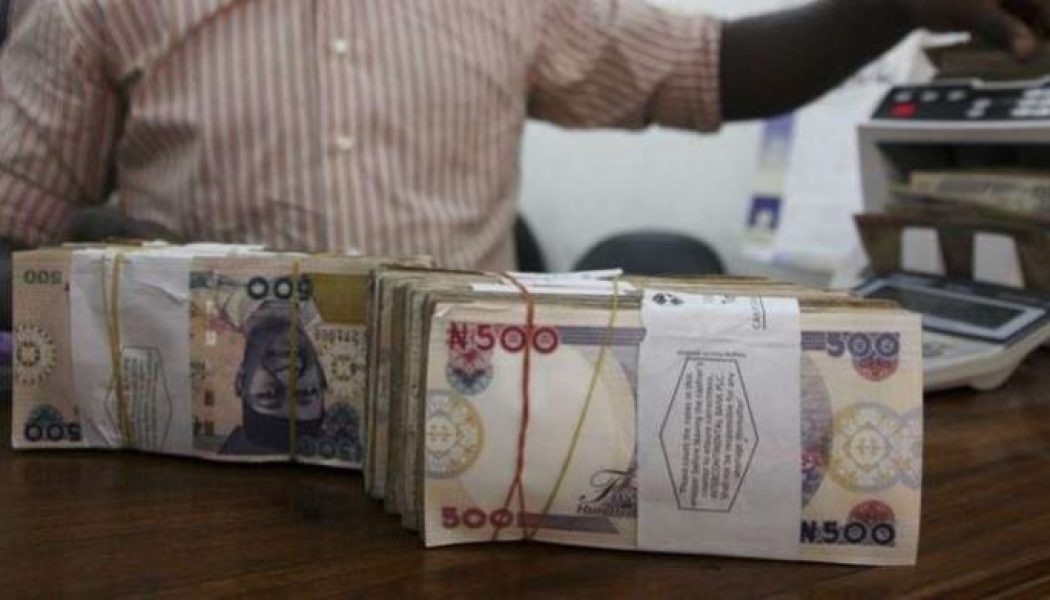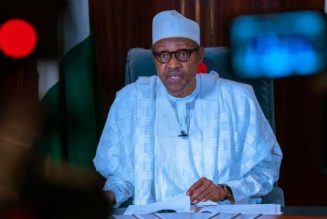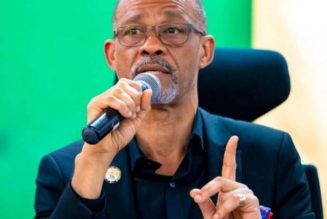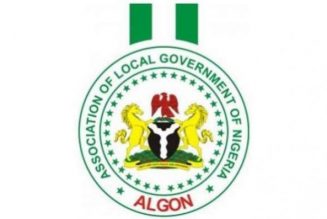
Nigeria’s deposit money banks (DMBs) must brace up for the challenge of 2021 that might tax their resolve to remain in business.
Reason: the industry is faced with a tougher operating environment that could threaten the operators’ ability to meet their stakeholders’ needs and expectations yet perform meaningful corporate social responsibility roles.
Their valuable customers such as high net-worth individuals, corporate bodies and other institutions are equally challenged.
In his book, Business Stripped Bare, celebrated iconic entrepreneur and founder of the Virgin Group, Richard Branson, says, “without trustworthy banks, there can be no business, no employment, no money.
According to Branson, “People have got to be able to go to bed at night secure in the knowledge that the money they deposited today will still be there for them to withdraw tomorrow.”
But the regulatory pressure on banks even amid Covid-19 pandemic is a concern to industry watchers.
A worse destruction cannot be imagined in today’s business world going by Covid-19’s twin grave impacts: global crisis of a health pandemic and economic shrink from prolonged lockdown.
Besides harming the livelihoods of people, especially the low-income population globally, experts point to its devastating economic uncertainty as a grave danger.
Covid-19 “is an unparalleled global macro-economic shock of uncertain magnitude and duration. The uncertainty is what makes it so very dangerous,” said Financial Inclusion Advocacy Centre (FIAC) of the UK in a report last June.
Agreed, operating in an atmosphere of extreme uncertainty is a cross the DMBs must bear to play their role as financial intermediaries, even when the pandemic has left them a daunting puzzle for survival.
However, jabbing hot knives into the heart of the operators through a dovish monetary environment creates the misleading impression that profitability has receded from their priority as going concerns.
In recent times, banks have been gasping for breath under circumstances that put undue pressure on them, leaving their stakeholders who salivate at the prospect of handsome dividend pay-out painfully disappointed.
The ravaging impact of Covid-19 pandemic did not assuage the rage of the monetary authority who created the impression that banks should be forced to lend to the real economy, even when the fundamentals are lacking.
One way the regulator has done this is by raising the stake in Loan-to-Deposit Ratio (LDR).
The CBN had on July 3, 2019, initially directed banks to maintain a minimum LDR of 60 per cent from 58.5 per cent on or before September 30, 2019.
The apex bank thereafter went ahead to review the LDR to 65 per cent in October 2019, setting a new deadline for compliance to December 31, 2019.
The bankers’ bank retained the LDR of 65 per cent in a circular issued to banks on January 7, 2020, saying it was an “interim” measure.
In a circular entitled, “Regulatory Measures to Improve Lending to the Real Sector of the Nigerian Economy”, and signed by its Director, Banking Supervision Department, Ahmad Abdullahi, the CBN cautioned banks against violating the LDR. adding that compliance going forward would be assessed on a daily basis through daily figure averages.
The prescribed punitive measure to ensure compliance by DMBs is a levy of additional Cash Reserve Requirement (CRR) equal to 50 per cent of the lending shortfall of the target LDR.
On April 24, 2020, CBN debited banks N1.4 trillion for failing to meet CRR targets, while the banks suffered N459.7 billion on June 5, 2020 for the same reason.
On July 4, 2020, a total debit of N118 billion was imposed on banks for CRR violation; again, the banks had their vaults debited N321.6 billion on August 29, 2020.
While the CBN may have a good reason to boost banks’ lending to the private sector, industry watchers feared that the high LDR policy with the prescribed punitive measures, has the potential to negatively impact the quality of banks’ loan portfolio in their attempt to meet the CBN target.
Evidently, this could further accelerate increasing Non-Performing Loans (NPLs), with high inflation and weak consumer demands assuming new dimensions.
The Founder of Stanbic IBTC Plc, Atedo Peterside, observed that the 65 per cent LDR had grave implications for the stock market.
Addressing participants at the investiture and induction of Associates of the Chartered Institute of Stockbrokers (CIS), in Lagos in May 2020, Peterside categorically stated that the stock market was feeling the ‘heat’ of the CBN policy.
“What the Central Bank of Nigeria has done is to come out with a loan to deposit risk which is rigid and punitive.
“The logical implication of that is that if banks take deposit, they must take loan for you and when they do not find loans to take, they stop deposits because if they take it, they cannot realise them.
He continued: “So, if inflation is 12 per cent and banks are offering you deposits at one to two per cent, what are the likely things you are going to do, because investors have a choice? You can buy property, and you can also buy foreign exchange.
“Unless you are buying a stock that you know is going to be very cheap and it has value in dollar terms, the short everybody does is to think about speculating in foreign exchange, so these are the things that are making it impossible for the stock market to function.”
According to Nairametrics, the CBN held a total of N6. 57 trillion in CRR debits from the nation’s top 5 banks as of September 2020 – a whopping 43 per cent higher than the N4. 58 trillion held in March and more than double the N3. 5 trillion CRR debits as of December 2020.
Another dimension to the operating challenge confronting the banks is the recent decision by the Nigerian government to take over N895.5 billion in quoted companies and deposit money banks, as “special borrowing” to fund crisis-related expenditures.
The amount represents unclaimed dividends (standing at N158 billion) and dormant bank balances (estimated at N737.5 billion) in the affected financial services sub-sectors in the enforcement of the recently enacted Finance Act.
Section 77, 1-3 of the Finance Act stipulates, “From the commencement of this Act, any unclaimed dividend of a public limited liability company quoted on the Nigerian Stock Exchange and any unutilised amounts in a dormant bank account maintained in or by a deposit money bank which has remained unclaimed or unutilised for a period of not less than six years from the date of declaring the dividend or domiciling the funds in a bank account shall be transferred immediately to the Unclaimed Funds Trust Fund.
“Provided that this section shall not apply to official bank accounts owned or belonging to the Federal Government, State Government or Local Government, or any of their Ministries, Departments or Agencies.”
A key player in the Nigerian stock market who pleaded for anonymity lashed out at the government for the decision to take over other people’s assets in the name of “Unclaimed Funds Trust Fund”.
He said the funds should be left in the custody of the banks to trade with and to boost liquidity in the system.
“The environment is not investment friendly, there is severe infrastructure challenge, insecurity is threatening agriculture, manufacturing and transportation sectors; bank lending determinants evolve, you do not ‘decree’ economic development”, he said.
A Stockbroker and Assistant Vice-President at Planet Capital Limited, Paul Uzum, warns that the punitive rules imposed by the CBN to arm-twist banks to extend credit to the economy could be counterproductive.
He said the crowded stock market by investors fleeing from low yield fixed income space, could lead to a bust which will spell harm for the economy because “we have a bullish market with weak fundamentals and the banks are being increasingly exposed”.
The 9-Month reports of the banks released in 2020 showed the signs that the financial services institutions will practically walk a tightrope in 2021, based on their lean interest income figures.
According to data published by BusinessDay, the largest lenders saw their combined interest income and similar charges, a significant component of revenue decline by 1.81 per cent to N2.11 trillion as at September 2020.
The report showed that banks were forced to lower interest in a bid to meet the loan-to-deposit rules, as the CBN reduced the monetary policy rate (MPR) in a bid to support the economy during the coronavirus pandemic period that stoked business paralysis.
The decision of the regulator to bar non-financial companies from its Open Market Operations as well as a cut in cash reserve ratio to 22.50 per cent from 27.50 per cent, sent Treasury Bill yields crashing to unprecedented levels.
The CBN also slashed minimum interest rates on savings deposits to 1.25 per cent effective September 1, 2020.
“Banks will rather remain on low profitability for the most part of next year (2021) than lend to bad borrowers”, Wale Okunriboye, equity research analyst at Sigma Pensions Limited was quoted as saying.
Figures picked from the report revealed that five big banks recorded decline in interest income in their 9Month report.
They are First Bank Holdings, Zenith Bank, Access Bank, Guaranty Trust Bank and United Bank for Africa.
“The implication of low margins is that profitability will decline, and they have to rely on gains from foreign exchange revaluations and cost reduction to weather the storm caused by the Covid-19 crisis and difficult operating environment,” the report said.
A Labour Economist, Benneth Ujah, told newsmen that banks are most likely to embark on further staff rationalization in 2021 amid tough operating environment and dwindling revenue opportunities, leveraging on technology.
According to data from the NBS, the banking sector reduced its total headcount to 94,498 as of June 2020 from 96,975 in March of the same year, showing that about 2,477 employees were laid off in the second quarter of 2020.
“The impact of the difficult operating environment is not only on the banks directly, but it also affects their customers and creditors because if an industry is challenged, it impacts negatively on its deposits with the bank which boosts banks’ turnover.” Ujah stated.
Fitch Ratings had in January 2020 described the high cash reserve requirement the CBN prescribed for DBMs as “credit-negative”.
It said high CRR for Nigerian banks was credit-negative for the sector as it would restrict banks’ ability to lend and dampen their profitability.
It said the CBN’s decision, designed to reduce excess banking sector liquidity in an attempt to curtail high inflation, clashes with the apex bank’s competing objective to stimulate lending.
“The CRR increase is an example of the kind of unpredictable regulatory intervention, seen especially since 2019, that poses challenges for Nigerian banks”, Fitch Ratings said.
The year 2020 was extremely unkind to mankind, about the worst year ever. Financial service institutions were not exempted.
The banks led the Coalition Alliance Against COVID-19 (CACOVID), the private sector initiative to support healthcare professionals, institutions and governments – by mobilizing private sector leadership and resources to mitigate the impact of the pandemic on business and the people.
A total of N39.64 billion – in kind donations as well as funds, was realized from the initiative as of November 2020.
“Government and the regulatory authorities must support banks in their role as financial intermediaries in the economy; banks are trading with shareholders’ funds and customers’ deposits.
This year (2021) is going to be quite challenging for the banks because they only managed to survive the impact of the lockdown, border closure and tight monetary policies of 2020”, said National Chairman, Progressive Shareholders Association of Nigeria (PSAN), Boniface Okezie.










